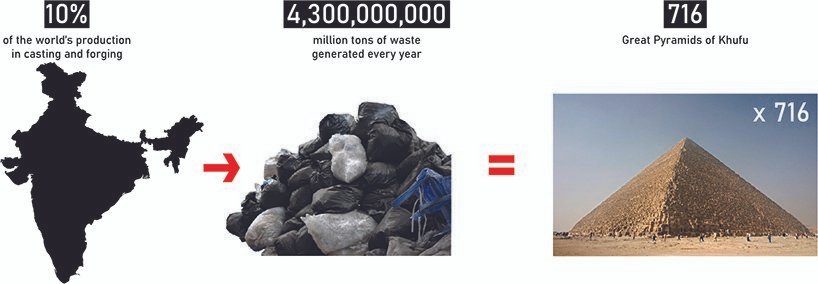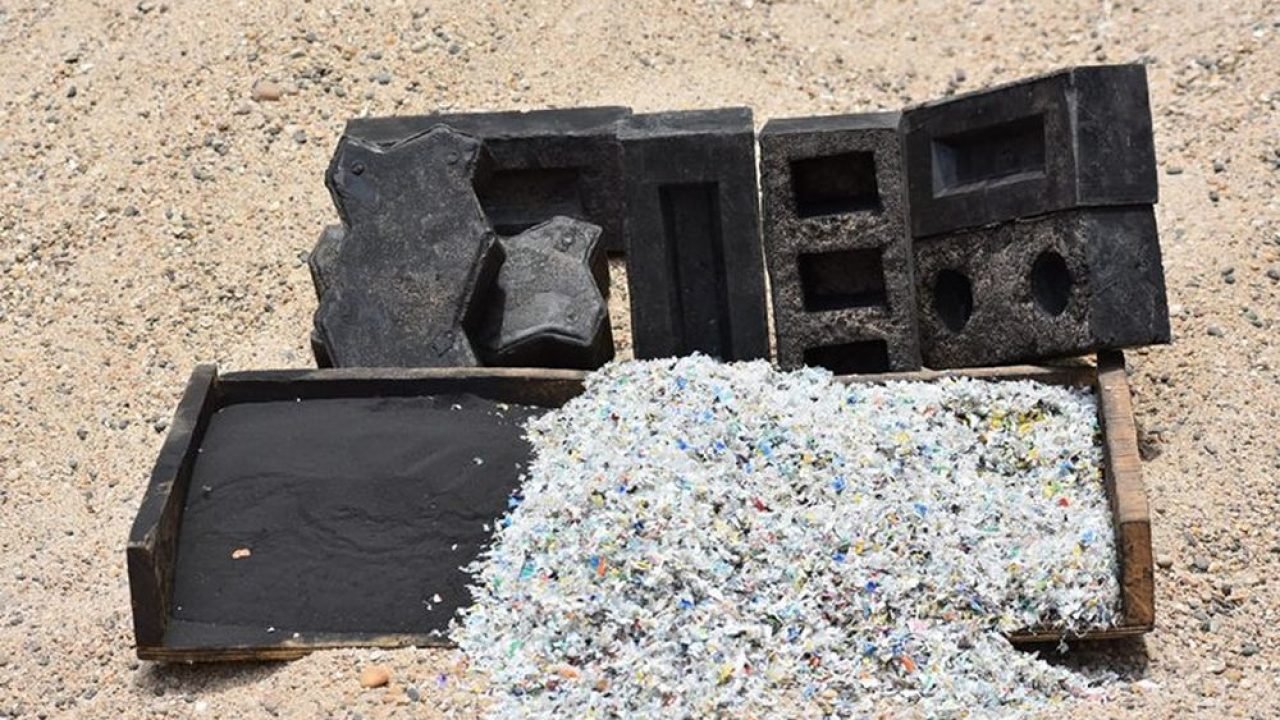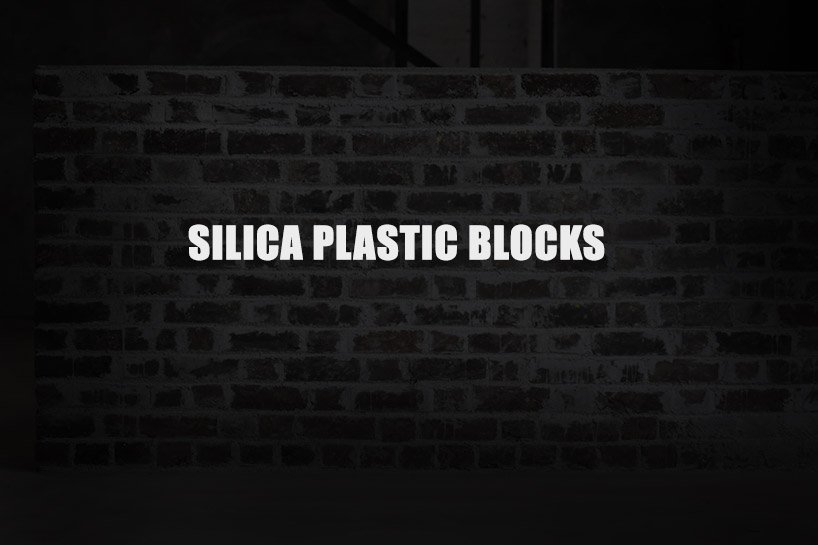An Overview:
Did you ever imagine that the construction industry contributes higher to global warming? Well, here is the answer, the construction industry contributes 39% of the world’s CO2 emissions, that means we need sustainable building materials first. One such alternative has been launched by an Indian Company – Rhino Machines, an alternative to traditional brick called silica block in collaboration with R+D Studio.
Construction sites create a lot of waste, and some of it is reusable, but many solutions up till now have seemed useless. For example, the foundry waste, that billows up to create health hazards, as well as landfill problems. We have seen mushrooms turn into bricks and now we see this bricks made of 80% recycled sand waste/foundry dust and 20% mixed plastic waste.

Silica Plastic Block (SPB) aims to minimise dust waste and plastic pollution India, which in the past has created a severe environmental hazard. The main objective behind SPB was of producing zero waste from the sand retrieval plant in Rhino Machines foundry plant. The initial experiments involved foundry dust in cement-bonded fly ash bricks (7-10% waste recycled) and clay bricks (15% waste recycled), with various other natural elements like cement, fertile soil and water were also required for experimentation.
Silicone Plastic Block (SPB) is an eco-friendly building solution that aims to make use of materials that otherwise go to waste. The bricks are crafted from a blend of materials including 80% recycled sand & foundry dust along with 20% mixed plastic waste. This makes the bricks strong yet sustainable solutions for use in construction to achieve projects in a more eco-friendly manner. The collaborators used mixed plastic waste as a bonding agent that reduced the need for water during mixing, eliminating curing. These bricks can be directly used after cooling down from the moulding process.


The silicone plastic block is reported to be 2.5 times stronger than the conventional clay bricks while using 80% less natural resources in their production. These SPB bricks can help solve the waste issues and still accommodate the needs of developers all-together. In a time period of four months, numerous other industries like hospitals, societies, individuals, social organisations and local municipal corporations approved for providing clean plastic for this project.
In total, six tonnes of plastic waste and sixteen tonnes of dust and sand from the waste industry were collected and were recycled to make SPBs. The production cost for these bricks is available red clay bricks or the concrete masonry unit.

